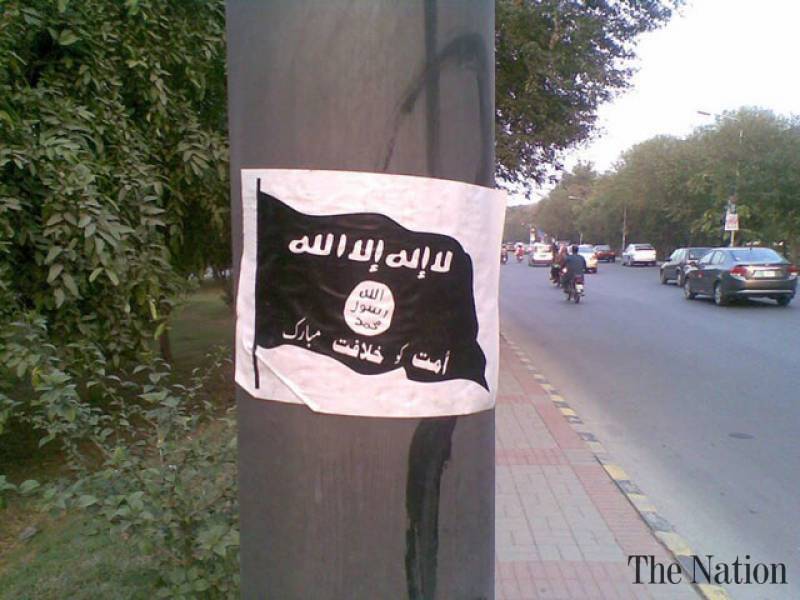LAHORE: There is no concrete evidence of Daesh footprint on Pakistani soil, sources from a military intelligence agency claimed, rejecting rumours generated as a consequence of half-baked reports of the civilian anti-terror setup in this regard.
During background interviews with The Nation yesterday, sources from a top security agency said that newly created civilian anti-terror sections were confusing members and affiliates of the Hizbut Tahrir with that of Daesh because of their inexperience and lack of skills.
Some sections of the civilian security apparatus lack the expertise to acquire accurate information through intelligence gathering as well as interrogation of the suspects, they said. This was why some media reports quoting incomplete and provisional investigation reports wrongly claimed presence of Daesh members in Sialkot and Lahore, they explained.
A series of reports in sections of media even claimed flight of 10 people from provincial capital to Syria to join Daesh but they were later traced and found to be in Lahore. The reports also claimed that Sialkot catch was also linked with Daesh.
Apparently, the half-baked reports of the civilian security apparatus leaked to the media led to rumour mongering on the issue of Daesh, the intelligence sources said. An inquiry about this display of non-professionalism had already been launched in the relevant quarters, they said, adding that it would take some time to the civilian anti-terror apparatus to get adequate skills in this tricky and difficult area.
According t them, Daesh had been added to the list of banned terrorist outfits by interior ministry last year as a pre-emptive measure, but it did not mean the Middle Eastern terrorist organisation has any real presence on Pakistani territory.
The sources of the premier security agency, which has extensive experience in counter-subversion operations, said they have the information that the banned Hizbut Tahrir was leading the psychological warfare operations aimed at brainwashing its targets through misleading propaganda to recruit the same to serve their extremist agenda.
“Hizbut Tahrir is found involved in subversive activities by urging different sections of society through their propaganda to destroy the existing system. The two professors picked up from a university are also proponents of Hizb ideology but they were connected with Daesh by some quarters either mistakenly or due to lack of expertise.
The civilian security services are also confusing the anti-subversion operations with anti-terror operations.
The suspects relating to these two different anti-state activities need to be handled differently, they emphasised. There are different interrogation techniques and different kind of field operations to counter these two threats, they added.
“A single sleeper cell chain consists of different numbers and catching one member doesn’t mean that the agency concerned has blown the entire cell. In many cases, no member of the cell knows about all of the rest of them,” they said.
“Hunting down the entire chain is a difficult and time taking task and it is not like policing wherein the case officer can reach the whole gang by nabbing a single member,” they explained. Strangely however the civilian anti-terror sections are trying to bust terrorist sleeper cells though the techniques used for detecting and apprehending thieves,” they said.
In the past, Daesh had made bids to create pockets in Pakistan in Balochistan through Afghanistan but elimination of its key sympathisers linked with TTP splinters failed its plans.
Usman Saifullah Kurd, operational commander of Balochistan LeJ connected with TTP, who had to be crowned as Daesh chief of the restive province, was killed in a gunbattle in Quetta in February last year, while key members of his group were taken out later in follow up anti-terror operations.
Kurd made contacts with Daesh leadership through a contact person, codenamed “Moavia” who was affiliated with Jamaat-ul-Ahrar, a splinter of TTP. Kurd was taken out in a special anti-terror operation in the outskirts of Quetta when he was about to meet his Daesh contact who had reached from Afghanistan to get his allegiance for Abu Bakr Al Baghdadi.
When asked about the Safoora Chorangi attackers’ links with Daesh they said, “One of the culprits, Tahir, formed his group on the lines of Daesh, but the Middle Eastern outfit has no direct or indirect link with him. It was just a ploy on his part to seek publicity to buy some fear power by posing himself as a Daesh activist.”
In the interrogation of TTP sleeper cells busted in South and Central Punjab cities of Gujranwala, Kasur and Multan last year, the intelligence agencies could not find their linkages with Daesh at any level.






